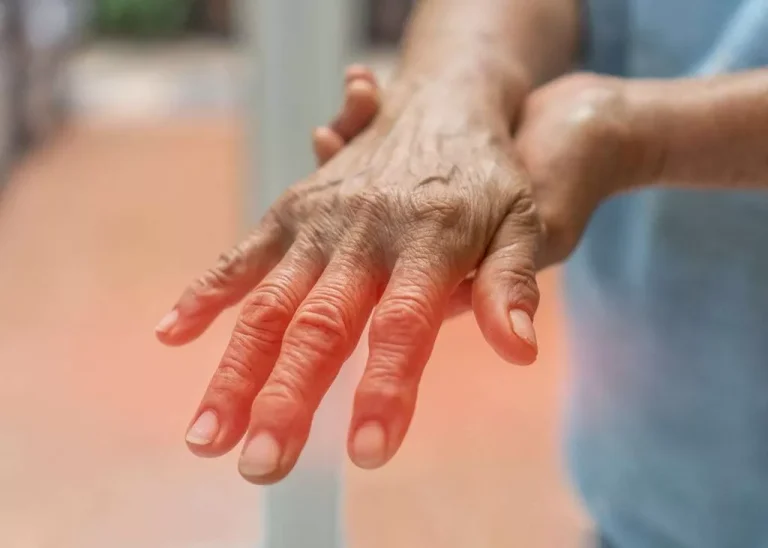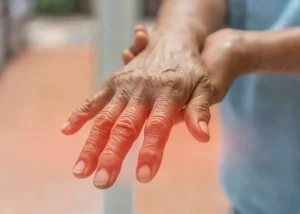
Thoughts like “I’m no good” =https://ecosoberhouse.com/ or “Everyone’s against me” drain the hope and energy we need to sustain positive change in addiction recovery. Recognizing and then challenging these damaging thoughts allow us to see ourselves in a more hopeful, more accurate light. Whether we notice them or not, our thoughts are the driving force behind our feelings and actions. What we think about ourselves and others determines how we carry ourselves in the world, how we interact with people around us and how effectively we manage life. Introduced by the Buddha as a path to spiritual enlightenment more than 2,500 years ago, mindfulness is the art of being present in your own life. It’s a gentle way of opening your mind to greater awareness; to a truer, deeper understanding of yourself and your world.
- According to the Addiction Policy Reform (APF) Survey, 1 in 3 report changes in treatment or recovery support services due to the COVID-19 pandemic.
- Many inpatient and outpatient recovery centers may offer yoga and meditation as part of their comprehensive treatment packages.
- Usually, we’re feeling stressed about something that happened in the past or feeling anxiety about what might happen in the future.
- Of the APF survey respondents, 75% reported emotional changes since the beginning of the pandemic, especially increased worry (62%), sadness (51%), fear (51%), and loneliness (42%).
Here’s a Sample of the “Guided Meditation for Addiction” Guided Meditation Script:
If you feel uncomfortable or restless with all that silence and introspection, you’re not alone, so keep at it. Like other forms of addiction, addiction to alcohol causes great harm to those who are dependent and everyone connected to… Many addicts come into recovery with a history of relationships that they have damaged or that have damaged them.
Mental Health Treatment
In the context of addiction recovery, meditation serves as a key ally. One of its primary benefits is in managing cravings and withdrawal symptoms, common hurdles in the journey toward sobriety. By fostering mindfulness, meditation helps individuals observe their cravings without acting on them, effectively reducing their intensity and frequency.
Intervention Help

The evidence of mindfulness in the prevention of relapse is limited by high attrition rates in RCTs. However, they did find statistically significant differences in favor of MBRP on withdrawal/craving symptoms and negative consequences of substance use. The authors call for higher quality RCTs to evaluate the effectiveness of MBIs for relapse prevention. Consider the case of a man in partial remission from alcohol use disorder who has recently stopped drinking. After successfully abstaining from alcohol for over 2 months after realizing the negative impact his drinking had on his family and work, he attends a party with old friends, where he is overcome by craving and has a drinking lapse. He could interpret this lapse as the beginning of a downward spiral into his alcohol use habits, with attendant feelings of shame and hopelessness.
- Meditation apps can help you learn more about meditation and practice specific techniques for different situations, such as dealing with anxiety or stress during your addiction recovery journey.
- We let go of the judgments, stereotypes, and prejudices that build walls and practice the tolerance, kindness, and empathy that build bridges.
- Stillness opens our hearts and minds to the vast potential within us as we move through addiction treatment and into recovery.
- Due to the impactful effects, many people are turning to meditation for addiction recovery support.
- This can help you “get out of your head” and view your experiences through a more well-rounded and empathetic lens.
Meditation is a powerful yet simple technique with many health benefits, including reduced stress and anxiety. Due to the impactful effects, many people are turning to meditation for addiction recovery support. Beginning a meditation practice can be as simple as dedicating a few minutes each day to quiet reflection and deep breathing.
Illegal Drug Addiction
Guided meditation is another form of meditation that may help you in addiction recovery. A guided meditation is a meditation that another person guides you through, whether in person or via a video or audio recording. If you or a loved one is struggling with a drug addiction substance use disorder, there is help available.

Here’s one treatment to help prevent relapse.
The road to recovery is possible, and as we move along it, support is certainly required. May this free guided meditation for addiction serve to meditation for addiction recovery uplift you on your journey of growth and transformation. You don’t need any special training or equipment to practice mindfulness and meditation.
- Originating from various spiritual and religious traditions, it has evolved into a universally embraced method for enhancing personal well-being.
- They’re just sort of there, like background noise we’ve learned to tune out.
- Develop awareness of personal triggers and habitual reactions and learn ways to create a pause in this seemingly automatic process.
- If you feel uncomfortable or restless with all that silence and introspection, you’re not alone, so keep at it.
- Meditating in the same place every day or even creating your own personal meditation area can give you peace of mind, especially if it is an environment that comforts and calms you.
- Try taking small, mindful “breathing breaks” throughout the day—while you’re at a stoplight or waiting in line, for example, or before you open your email or go to a meeting.
- Noticing the little things will ground you in the present moment—the place where you live your life.
Center for Teens, Young Adults and Families
Stress and anxiety can keep anyone up at night, but taking time during the day to calm yourself can help relieve these pressures before it is time to turn the lights out for the night. Beyond helping with reducing stress, meditation has also been shown to help boost a person’s mood. This can help create a more consistently positive mindset as you conduct your daily activities. Addictioncenter.com notes several other emotional and environmental triggers as well as warning signs for relapse. Notice how many are outcomes of the pandemic, i.e., loss of a loved one, boredom, etc. Of course, mindfulness is most effective when used with other therapy modules.
Phone, Video, or Live-Chat Support

A mantra is a simple phrase, sound, or word that you continually repeat during meditation. This type of meditation helps you to achieve clarity and stillness as it calms the mind, reduces stress, and provides a deeper relaxation. It is important to find a mantra that you are comfortable with and that allows you to focus. If you think meditation for addiction treatment would be a good option for your recovery, you can look for a facility that accepts your insurance. At American Addiction Centers, we can help you find a facility that works with your insurance and offers meditation treatment. If you prefer to search on your own for a facility, you can use this tool.

The phrase “just like me” is sometimes used in mindfulness meditations to promote compassion. For this exercise, simply repeat this phrase in your mind during your interactions with others, and remind yourself that everyone has hopes and fears, dreams and sorrows “just like me.” Whether it’s the daily grind, a difficult relationship, a sudden calamity or the relentless onslaught of the 24/7 news cycle, life gets to all of us sometimes. We constantly feel overwhelmed, and before we know it we’re exploding from stress or retreating to sulk—or worse, turning to alcohol or other drugs to cope. Doing this regularly may take practice, but it’s one of the easiest mindfulness exercises we practice. Noticing the little things will ground you in the present moment—the place where you live your life.